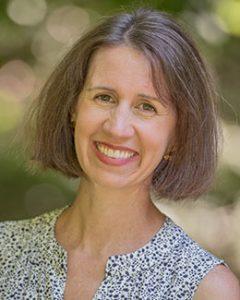Talk That Teaches
How to promote professional dialogue and growth
By Learning Forward and Lynsey Gibbons
June 2015
Read the remaining content with membership access. Join or log in below to continue.
Sed ut perspiciatis unde omnis iste natus error sit voluptatem accusantium doloremque laudantium, totam rem aperiam, eaque ipsa quae ab illo inventore veritatis et quasi architecto beatae vitae dicta sunt explicabo. Nemo enim ipsam voluptatem quia voluptas sit aspernatur aut odit aut fugit, sed quia consequuntur magni dolores eos qui ratione voluptatem sequi nesciunt. Neque porro quisquam est, qui dolorem ipsum quia dolor sit amet, consectetur, adipisci velit, sed quia non numquam eius modi tempora incidunt ut labore et dolore magnam aliquam quaerat voluptatem.
References
Ball, D. & Cohen, D. (1999). Developing practice, developing practitioners: Toward a practice-based theory of professional education. In G. Sykes and L. Darling-Hammond (Eds.), Teaching as the learning profession: Handbook of policy and practice (pp. 3-32). San Francisco, CA: Jossey Bass.
Bryk, A.S. & Schneider, B. (2003). Trust in schools: A core resource for school reform. Educational leadership, 60(6), 40-45.
City, E.A., Elmore, R.F., Fiarman, S.E., & Teitel, L. (2009). Instructional rounds in education: A network approach to improving teaching and learning. Cambridge, MA: Harvard Education Press.
Desimone, L.M. (2011). A primer on effective professional development. Phi Delta Kappan, 92(6), 68-71.
Gibbons, L.K. & Cobb, P.A. (2015). Identifying potentially productive coaching activities. Manuscript submitted for publication.
Fernandez, C. & Yoshida, M. (2004). Lesson study: A Japanese approach to improving mathematics teaching and learning. Mahwah, NJ: Erlbaum.
Fullan, M. (2010). All systems go: The change imperative for whole system reform. Thousand Oaks, CA: Corwin Press.
Higgins, K.M. (2013). Building a team of learners. Teaching Children Mathematics, 19(8), 490-496.
Lampert, M., Franke, M.L., Kazemi, E., Ghousseini, H., Turrou, A.C., Beasley, H., Cunard, A., & Crowe, K. (2013). Keeping it complex: Using rehearsals to support novice teacher learning of ambitious teaching. Journal of Teacher Education, 64(3), 226-243.
Little, J.W. (2002). Locating learning in teachers’ communities of practice: Opening up problems of analysis in records of everyday work. Teaching and Teacher Education, 18(8), 917-946.
Little, J.W., Gearhart, M., Curry, M., & Kafka, J. (2003). Looking at student work for teacher learning, teacher community, and school reform. Phi Delta Kappan, 85(3), 184-192.
National Council of Teachers of Mathematics. (2000). Principles and standards for school mathematics. Reston, VA: Author.
National Governors Association Center for Best Practices & Council of Chief State School Officers (2010). Common Core State Standards. Washington, DC: Author.
NGSS Lead States (2013). Next Generation Science Standards: For states, by states. Washington, DC: The National Academies Press.
Sherin, M.G. & van Es, E.A. (2003). A new lens on teaching: Learning to notice. Mathematics Teaching in the Middle School, 9(2), 92-95.
Smith, M.S., Bill, V., & Hughes, E.K. (2008). Thinking through a lesson: Successfully implementing high-level tasks. Mathematics Teaching in the Middle School, 14(3), 132-138.
Stoll, L., Bolam, R., McMahon, A., Wallace, M., & Thomas, S. (2006). Professional learning communities: A review of the literature. Journal of Educational Change, 7(4), 221-258.
West, L. & Cameron, A. (2013). Agents of change: How content coaching transforms teaching and learning. Portsmouth, NH: Heinemann.
Recent Issues
LEARNING TO PIVOT
August 2024
Sometimes new information and situations call for major change. This issue...
GLOBAL PERSPECTIVES
June 2024
What does professional learning look like around the world? This issue...
WHERE TECHNOLOGY CAN TAKE US
April 2024
Technology is both a topic and a tool for professional learning. This...
EVALUATING PROFESSIONAL LEARNING
February 2024
How do you know your professional learning is working? This issue digs...









